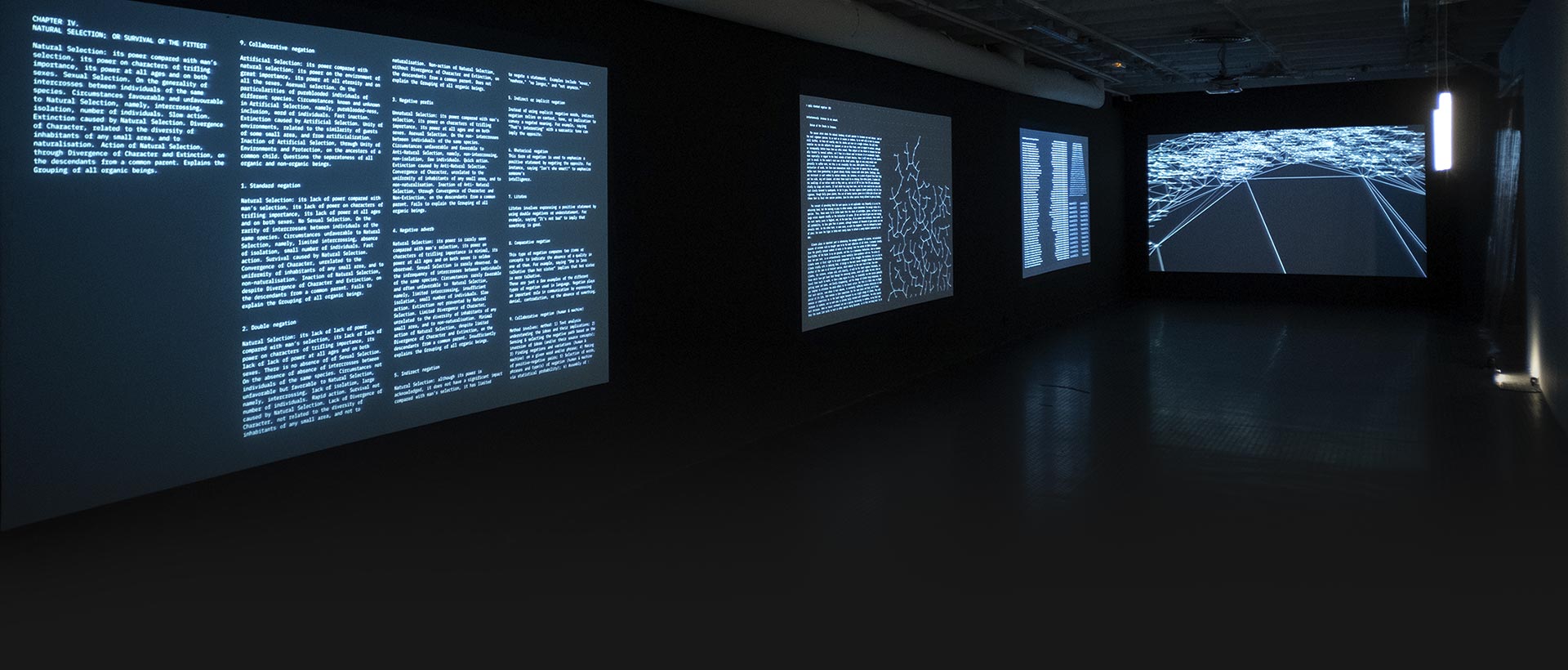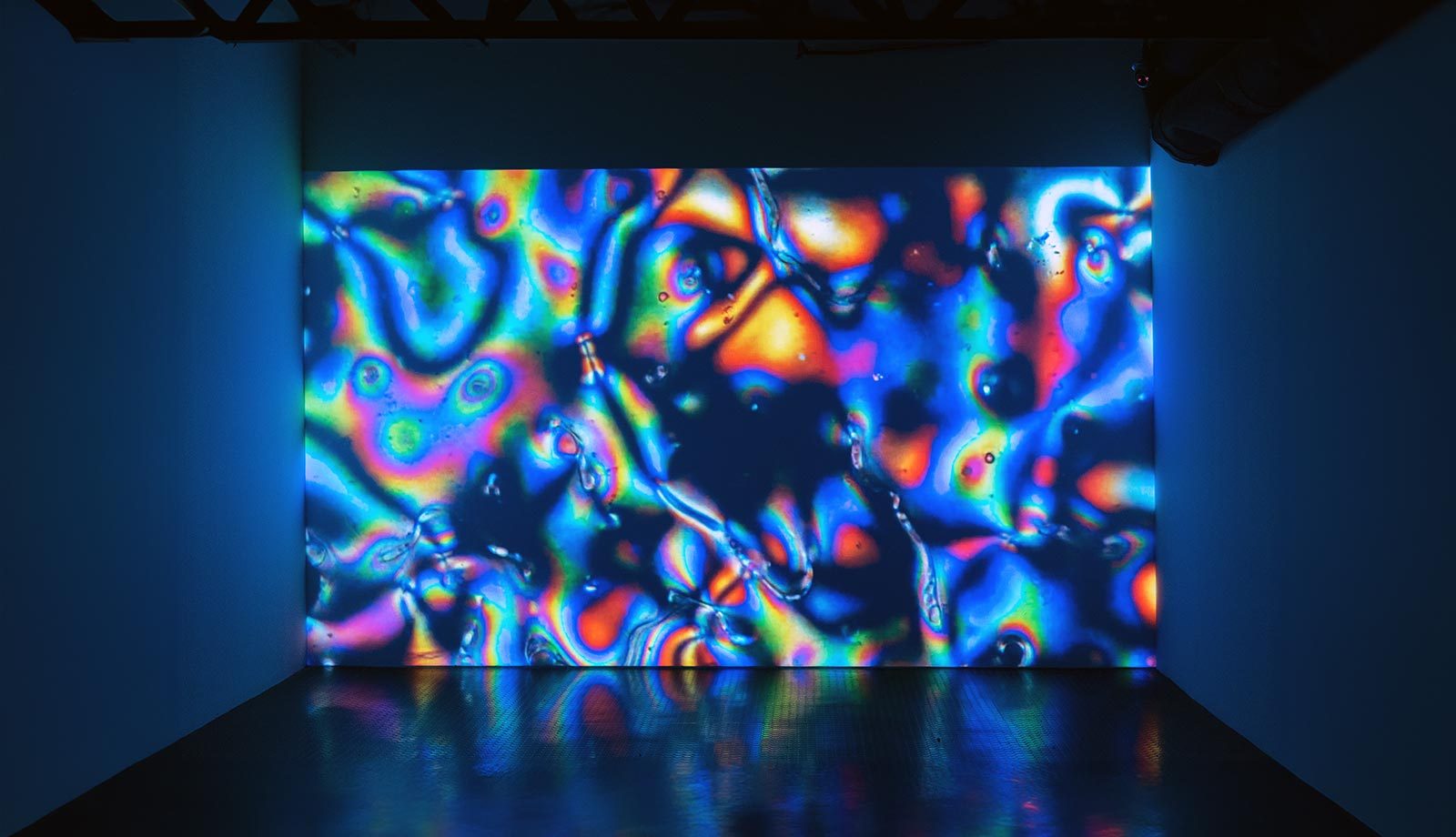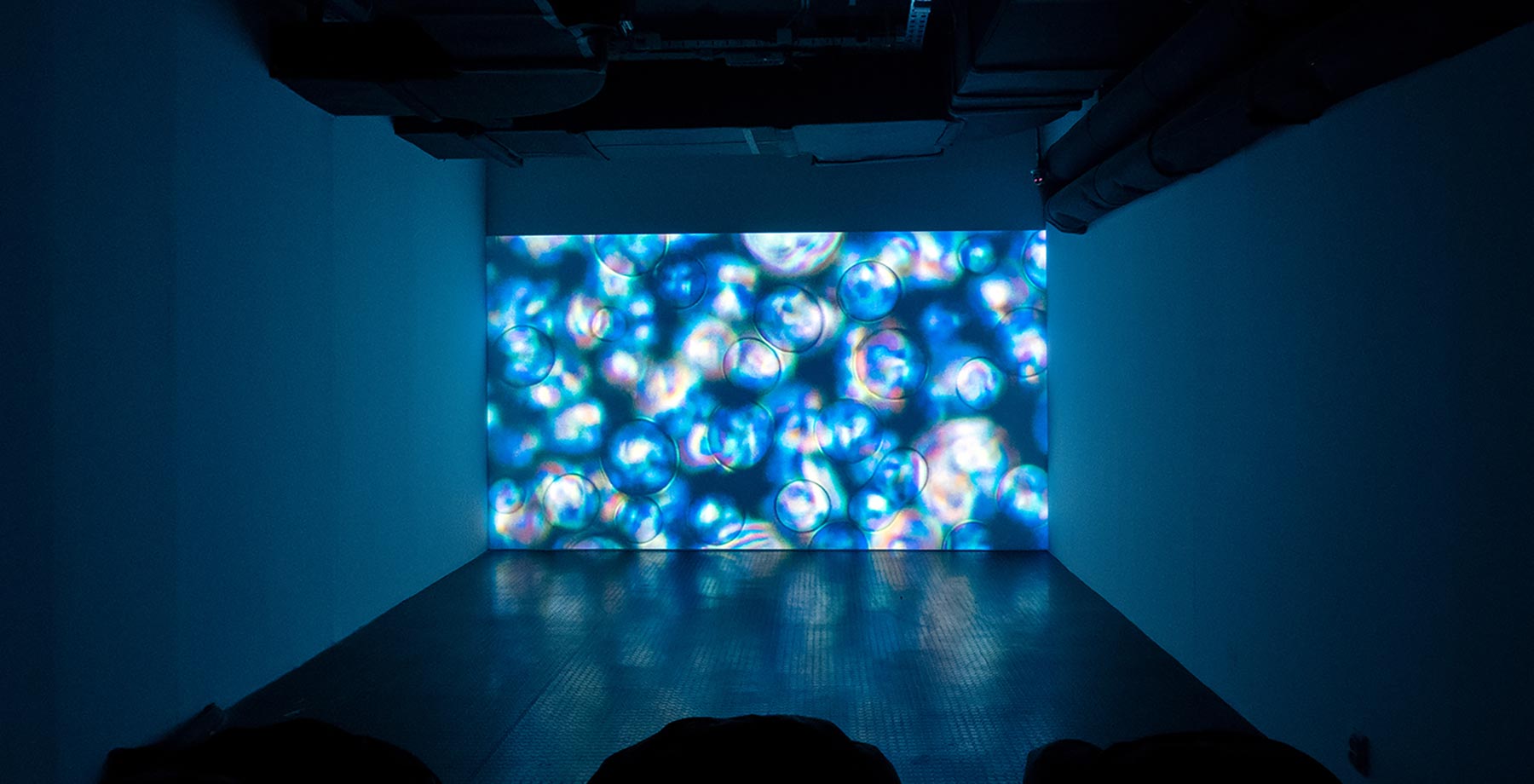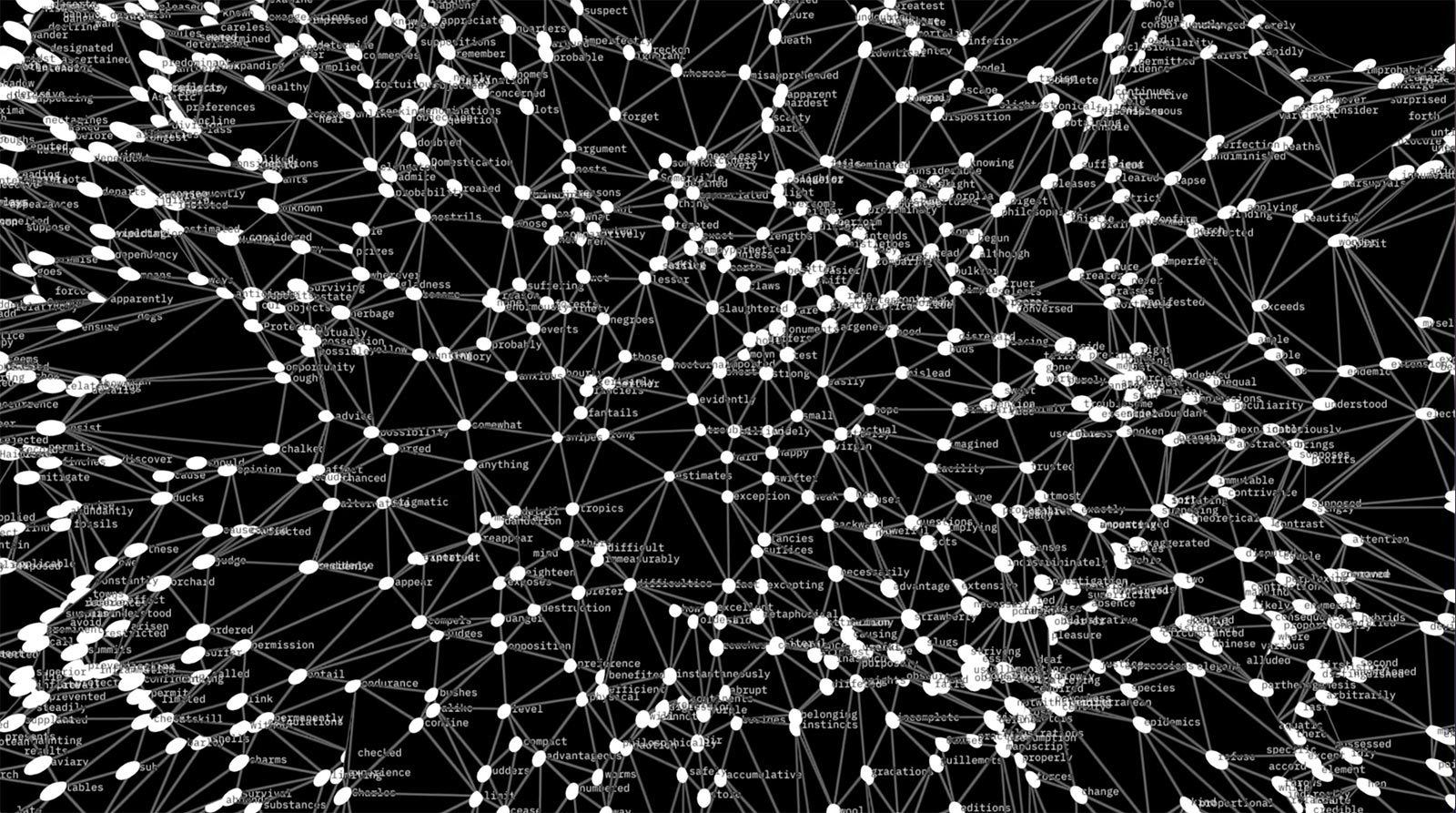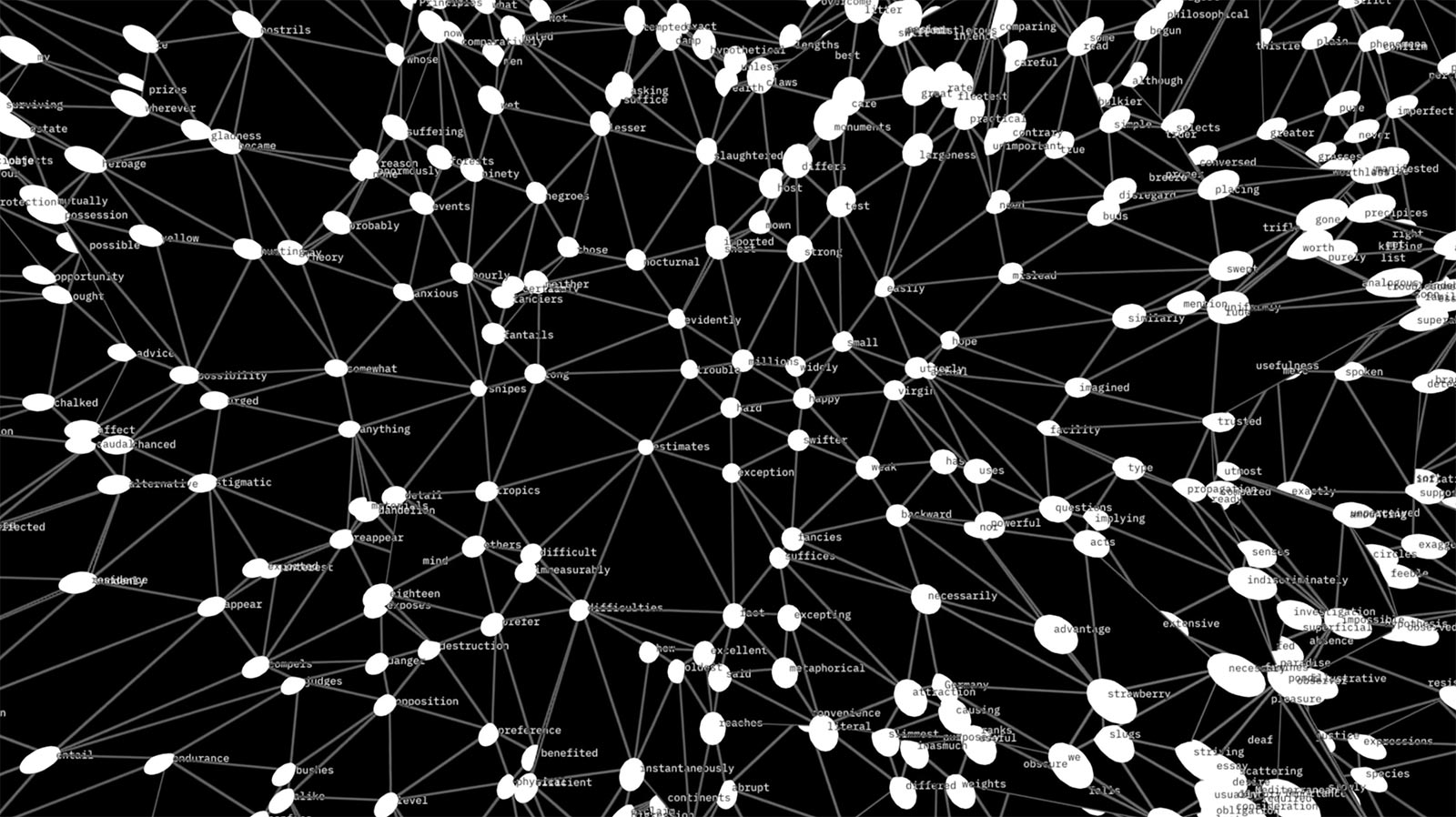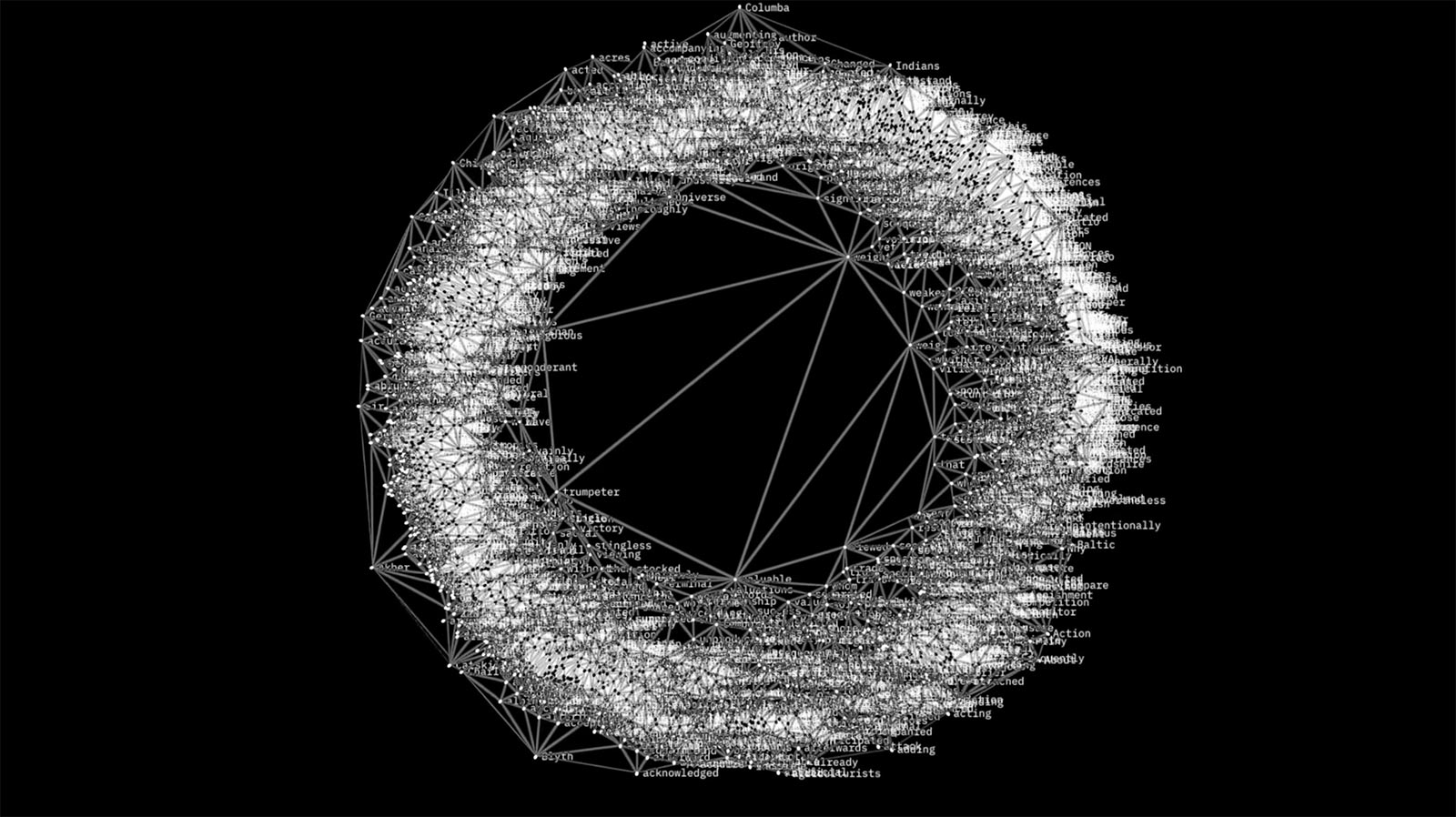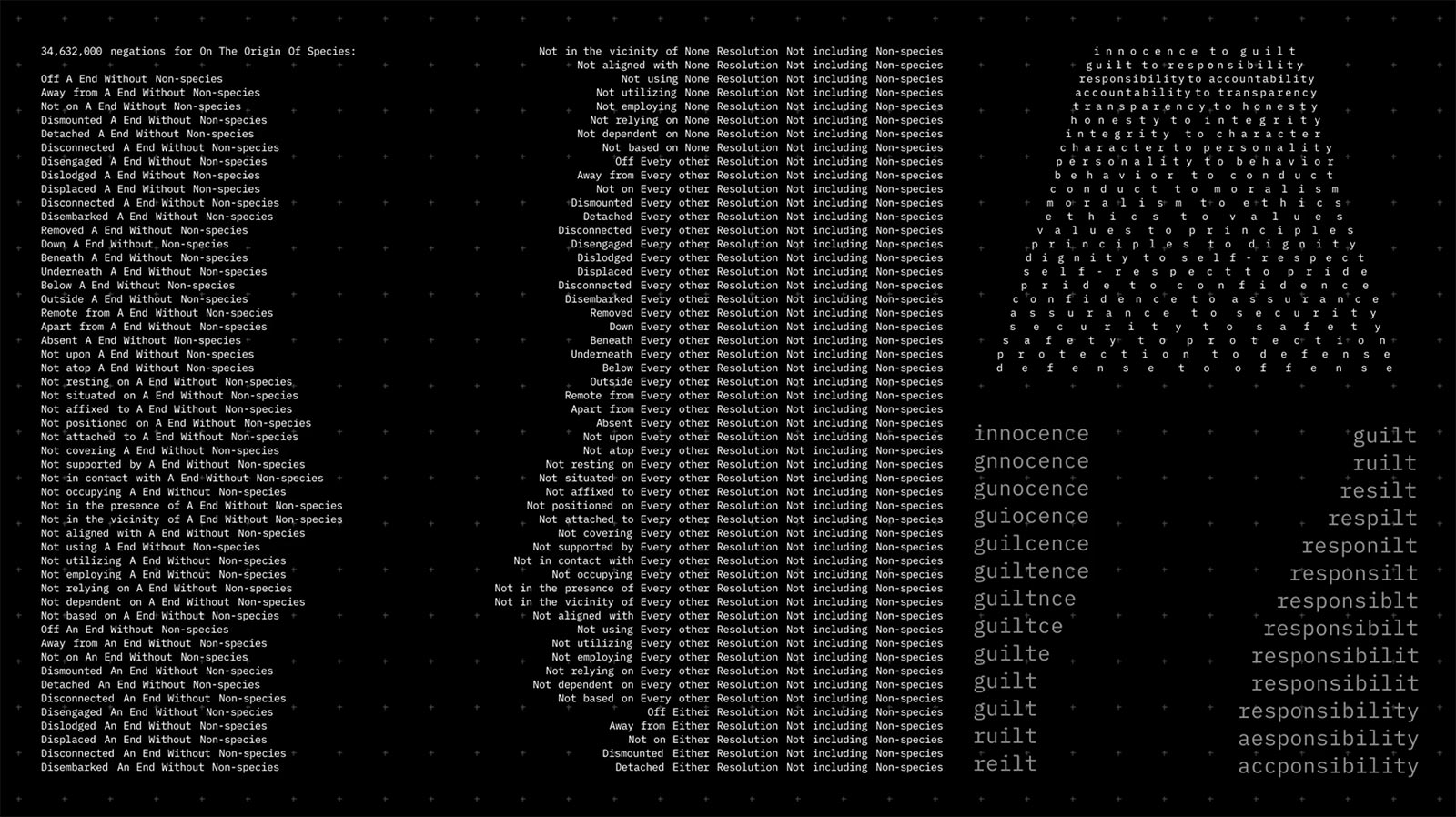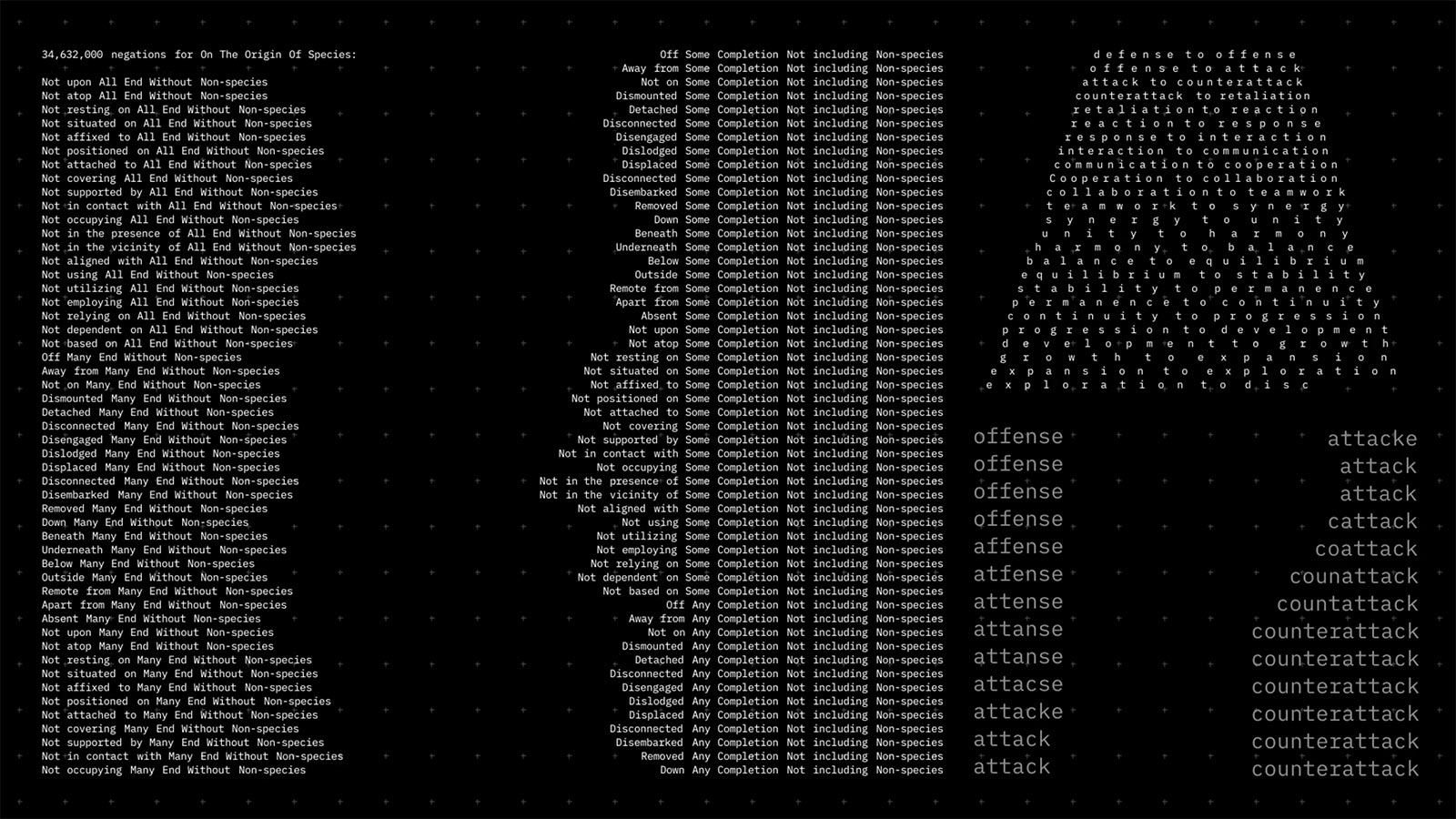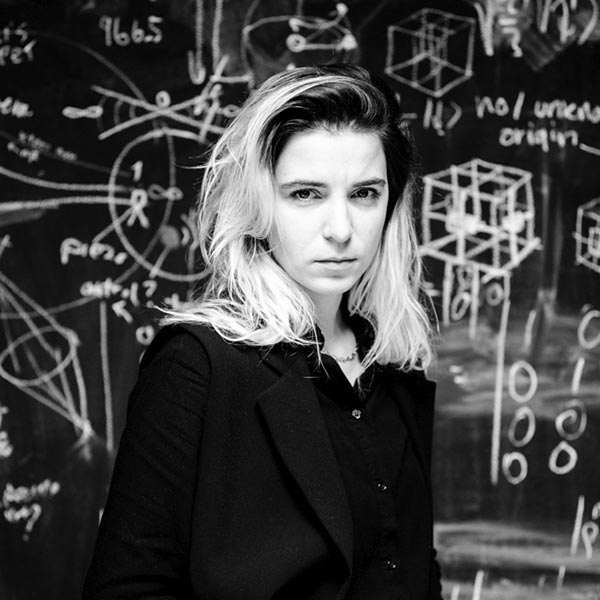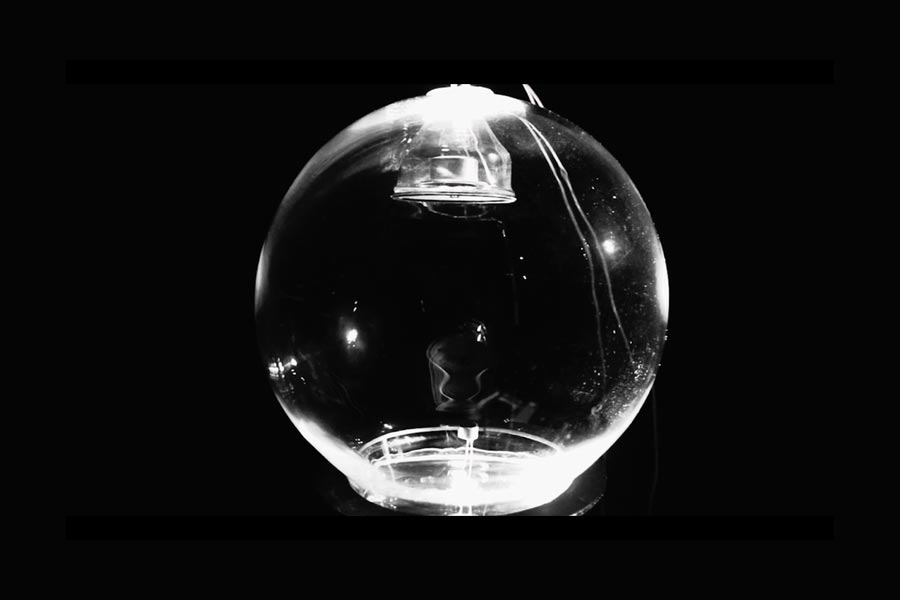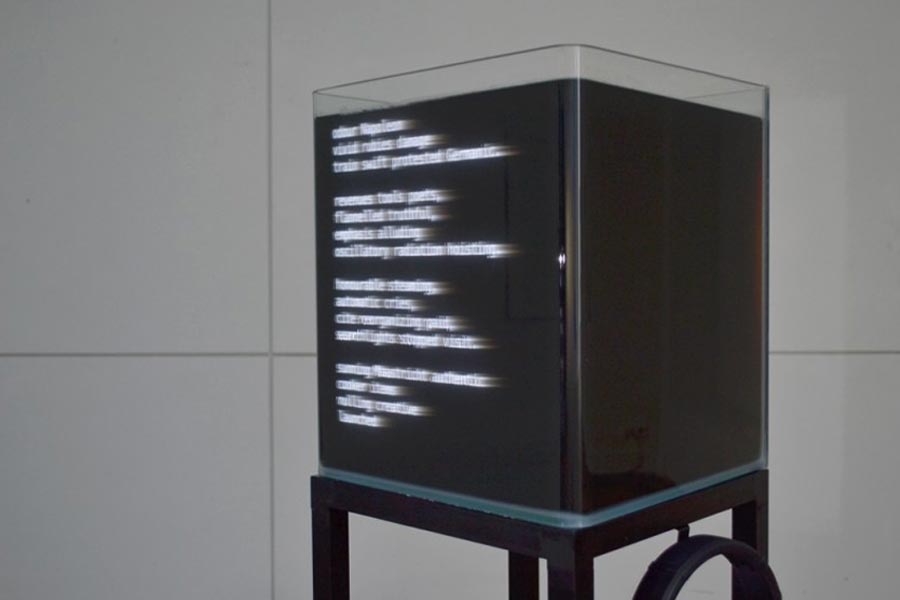Almost one year ago, NASA published the first photograph of deep space made by a space telescope. The backdrop for the abstract composition saturated with reddish-silver trails which, according to American President Joe Biden, represents a historic moment for science and technology, astronomy and space research, for America and entire humankind, is a black monochrome. Though this can be an iconic work of abstract expressionism, desktop theme, NFT, or an AI generated image, this deep space photo with black surface as its basis, seems to symbolically sum up different strivings of human civilisation connected to past, present and future moment.
In our daily lives oversaturated with screens, the aforementioned black surface adopts an iconic status, generating multitudes of meanings and associations. The apparent mirroring effect, that is, the reflection of human presence in the screen, perfectly illustrates the pulsating dialogue between the humans and technology¹ Though a claim like this automatically implies a socio-politically conceived perspective (to be emphasized later in the text), on the philosophical level, however, black surface may be connected to the concepts of nothingness, negation and/or zero, the illustration and understanding of which constantly resists human cognition.
Fascinated with the ways in which Western scientific discourse was defining the aforementioned concepts through history, Katarina Petrović in her recent artistic practice re-examines the possibility of their visualisation, but also their possible social implications. Exhibition Experiments in Zero represents a new chapter in her continuous research of creative processes from the matters of sense and an idea of origin, right down to the relationship between language and physical phenomena. Focusing on negative representation of what can be represented in no other way (zero, nothing, the infinite), the exhibition in the form of a dichotomous video installation explores what negation may be in language and nature. In examining unique natural and social phenomena, Katarina Petrović engages in a unique research process, establishing a direct link between organic and inorganic life, i.e. analogue and digital experience.
Similar to the Dadaist conception of tabula rasa, the principle of negation that the artist has been operating with in recent years, functions as a tool for transformation of meanings and opinions. Guided with the question of whether language can reach zero by means of the mathematical operation of cancellation, Katarina Petrović uses machine learning in order to generate new forms of knowledge, that is, language. Tabula rasa as an empty and in this case black board, becomes the space for a repeated simulation of meaning in her work The End of Individuals from the series Negative Poetry v.2.0. The famous 1901 book On the Origin of Species by Charles Darwin, which defined the theory of evolution based on natural selection, variations and adaptations to environment, is subjected to the algorithmic order of negation. In this process, the canon of Western science becomes speculatively interpreted, while simultaneously the discourse is being modified, by generating opposites to the claims made by Darwin, thus critically examining the final source of origin of all forms, i.e. the essence of being.
Opposite to the inorganic process presented in The End of Individuals, we have the other side of the mirror, so to say, exhibited in the form of the work titled LC-5CB from another series Origin v.2.0. In the focus of this experimental film is diffraction of the liquid crystals usually used in making electronic screens. In the vein of the avant-garde filmmaking of 1960s and 1970s and its aesthetics, primarily embodied in the opus of American experimentalist Stan Brakhage, LC-5CB draws the viewer in with its images, but also the sound extracted from the changes that occur when liquid crystals are exposed to light.
Both aforementioned works, the deafening sound of one of them that floods the entire space, photograms, digital drawings, but also accompanying elements such as dimmed lights and plastic curtains typical for industrial and scientific facilities, comprise a singular space which summarises the recent research by Katarina Petrović, which can first and foremost be understood in the context of ArtScience tendencies. However, what could the use of modern technologies mean, beyond the formal and doubtlessly visually impressive experiments, in the context of sociality?
Digital tools can certainly achieve intriguing results as they feed human curiosity. Simultaneously with every subsequent entry, they potentially generate more information, thus creating a huge database and, finally, an intricate linguistic system. In the throes of scientific and technological passion, a short poem is additionally created, i.e. generated for the Experiments in Zero exhibition, by Chat GPT with the guidance by the artist:
Liquid crystals cascade,
a rainbow's embrace,
transient beauty glimmers,
in time and in space.
No matter how strongly this seductive poetry produced by collaborative algorithmic effort may evoke different questions asked by Katarina Petrović herself², the anxiety connected with the role of new tools still prevails. In spite of the fact that technocrats contemplate electric towers outside of the domain of human experience, their creations embodied in artificial intelligence still make mistakes. However, the moment that machines, such as Chat GPT, make a mistake, their creators claim that the machines are in fact hallucinating³. In the case of art as a product of human activity, to hallucinate is by no means a futile, or problematic practice⁴ On the contrary, hallucination can generate an altered state of consciousness or, poetically said, a tectonic disturbance, that is, transformation of the individual, which points to the essentially affirmative nature of seemingly negative research by Katarina Petrović.
Yet, how could this altered consciousness be manifested in late capitalism? Considering the fact that zero may be taken to be the capitalist symbol of financial innovations throughout history, it is clear that this abstract concept signifies the flow of capital, and that in the present moment reflects hierarchical social relations regulated by technology. Whether these screens displaying sequences of numbers are used in stock markets, astronomy labs, military interventions, or terrorist attacks, they are nevertheless dominated by zero, as the ultimate signifier of the passing of time, and in what we recognise to be the surveilence capitalism^5 time is a data, i.e. profit. Therefore zero as the unit of measure of every scientific process, or the source of artistic inspiration, cannot escape its own social function.
In spite of the emancipatory potential of the sixth sense to contemplate absence, the intangible and unattainable, and to try and understand the concepts of nothingness, negation and/or zero mentioned at the beginning of the text, in the reality conditioned by technological progress which contributes to increasing ideological oppositions on the global scale, it seems that human experience becomes fragmented and less and less relevant. Gazing at their black screens flooded with information, the humanoid users lose not only their focus, but also the capability of articulating and expressing (critical) thought.
Even though machines’ needs for thinking are marginalised in this moment – this could easily be changed in the next. The apocalyptic scenario in which technology rules over society is no longer within the domain of fiction, since it is already unravelling. Be that as it may, the claim that any kind of a machine can generate hope could hardly be true. Such need is still primarily human. Translated into the language of artistic expression/research, in the case of exhibition Experiments in Zero, the hope is reflected in the tendency to simulate some new debates on language and the origin of species, somewhere on the border between science and art. In that case, the incomprehensible requires another type of attention, in the absence of screens, human interaction and perhaps looking high up to the unfathomable infinite which surrounds us and provides us with an opportunity to think.
Vladimir Bjeličić,
Art historian and exhibition curator
1
Thematised in the popular dystopian television series Black Mirror
2
Are our latest technologies that include artificial intelligence capable of producing meaningful textual negations? – from Katarina Petrović’s text %br
3
By appropriating a word commonly used in psychology, psychedelics and various forms of mysticism, AI’s boosters, while acknowledging the fallibility of their machines, are simultaneously feeding the sector’s most cherished mythology: that by building these large language models, and training them on everything that we humans have written, said and represented visually, they are in the process of birthing an animate intelligence on the cusp of sparking an evolutionary leap for our species. – Naomi Klein, AI machines aren’t ‘hallucinating’.
But their makers are
https://www.theguardian.com/commentisfree/2023/may/08/ai-machines-hallucinating-naomi-klein
4
Many avant-garde authors, visual artists and musicians experimented with psychedelic drugs in order to expand their own perceptions of creativity as opposed to social norms – A/N %br
5
In her book The Age of Surveillance Capitalism, Shoshana Zuboff explains this term as new economic order that claims human experience as free raw material for hidden commercial practices of extraction, prediction and sales. Surveillance capitalism is based on monetization of the data generated by monitoring movement and behavior of people in digital and physical world.
